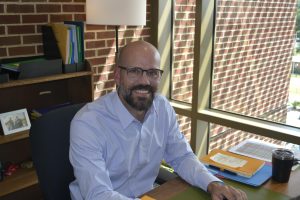Volunteers coordinate relief efforts
January 4, 2013
Teenagers are always in transition, from this fad to that, from one exploration of personality to another. But teenagers are less often in transition physically—without a place that most people would call home. For the past three months, freshman Kaylee Orchuk has lived in between homes, inhabiting just one motel room with four other family members and a dog.
“We came here in the middle of August because my dad got a new job,” Orchuk said. “We thought that we had an apartment here set up, but something mixed up, and we had to find a long-term room at a hotel. We didn’t think we’d be in it this long.”
Although her family’s room is well equipped, containing a kitchenette, bedroom, living room, and bathroom, the pressures of living and working in one room can be oppressive.
“It’s still really small for how many people we have,” Orchuk said. “It took a toll on me for a while. At different times, it’s really stressful and I feel I can’t take it any more. If one person’s in a bad mood, it offsets the whole thing and something bad happens.”
Orchuk and her family were caught in the disruption caused by the economy as her father changed jobs, similar to many of the families and individuals struggling in Fauquier County, according to Lynn Ward.
“The thing that strikes me is how many people have fallen out of the middle class,” Ward said. “I think the bottom line is, there’s a lot of people that need a hand up, and sometimes it’s hard to get that hand up. Sometimes they’re just stuck.”
Ward spends considerable time volunteering and working to support the homeless and transient in Fauquier County. According to Ward, poverty has increased by half in the years since the recession began in 2007. Having lost significant amounts of federal aid, agencies from the Free Clinic to Social Services have found it increasingly difficult to provide help for the struggling.
“I know the federal monies have been cut off to the food bank and Vint Hill Housing, and the latter have had to cut back from four support staff to two,” Ward said. “We went to Vint Hill and said, ‘What do you need?’ and they gave us two pages of just needs, like 150 hours of painting and repair work.”
Ward believe this approach to volunteering—simply traveling to various agencies and asking for what the Haven Homeless Shelter or the Free Clinic requires—with be the “paradigm shift” in addressing the county’s lack of unified institutions to give aid.
“We’re working on a website where needs would come up, and outreach people across churches could look at that and see if they can help,” Ward said. There are some thigns going on, and I think there are a lot of people out there who care, but I think we need to see the picture better, and get a lot more organized.”
Families in transition are eligible for transitional housing if at least one member has a job and a vehicle. Orchuk and her family were able to acquire their room without county aid, but she experienced many of the same emotional effects as teens in transition housing, including pressure when doing schoolwork.
“I couldn’t really get away to do homework or study,” Orchuk said. “I’m surrounded by kids running around, and it’s really hard to concentrate. It’s not as much room to play in. I do have to walk the dog a lot because we can’t just let her out in the backyard.”
Guidance counselor Warren Hackney, a major proponent of giving aid to the community (he organizes food collection for the homeless in Fauquier and Rappahannock Counties), emphasizes the importance of education, because hard times can hit without warning.
“We just tell kids all the time that education is so important,” Hackney said. “You have to be marketable, you have to have skills. You have to be a lifelong learner.”
When the guidance department becomes aware of a student’s [plight?], the county’s social worker and a local shelter are contacted, and staff members generally pitch in to give the student short term financial aid. Hackney has seen an increase in pressure on students since the 2007 economic decline.
“I think what I’ve seen since the recession is more stress in students,” Hackney said. “[Financial struggle] is trickling down to the students, and more have to work to help the family.”
Orchuk has moved out of the motel and into a house, a change she was more than looking forward to.
“I’ve grown accustomed to being so crowded,” Orchuk said. “I think it’s going to be really awesome—I can invite friends over, and I don’t always have to go elsewhere. I always feel bad about invading their space.”
These three months have been a period of personal growth for Orchuk; the experience has given her a much broader perspective on hardship since before she came to Warrenton.
“When I lived in a house, I took for granted,” Orchuk said. “I think that’s what my problem was back in Iowa—I always wanted things even though I knew my parents were tight on money. Now I realize I might not have everything I wanted.”






